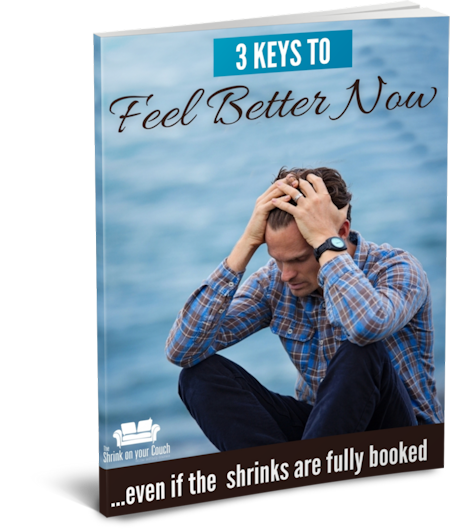In my experience, people who have been hurt, traumatised, or bereaved - but who have managed mostly to transcend their pain - do well to visit it, occasionally.
It can be unbearable or impractical to be permanently mindful of previous suffering. But taking time to reflect on all that has been, and what that means, is vital when in pursuit of a rich and connected life.
In my humble opinion, of course.
This is one of the benefits of a long-term therapeutic relationship with a psychologist, even if the contacts are somewhat infrequent over time. In such a framework, the therapist is less “interventionist” than professional witness to the person’s lived experience. One of the greatest privileges of my nearly 2 decades of work has been journeying with clients over time, and sharing their growth, setbacks, fortunes, misfortunes and actualisation.
I often speak to my private practice clients about “pockets of pain” that are activated months, years and decades after the initial impact of a trauma or tragedy.
Distressed individuals can feel quite confused when historical issues burst into technicolour, seemingly out of nowhere. They fear all their therapeutic work has been in vain, and that they’ve perhaps made no progress at all, if they’re feeling their “stuff” acutely.
The child abuse survivor who has risen strong and deliberately rebuilt from Ground Zero, suddenly feels fearful, confused and flooded with angst and anguish.
The divorcee who has undergone profound self-healing, suddenly feels bitter and enraged at the mere mention of his/her ex.
The adult child who has transcended childhood neglect, and applied useful boundaries, suddenly feels vulnerable and insecure.
Many moons ago, I was exposed to the idea that the drugs LSD and THC can be stored in their user’s fat cells, and chill there, dormant, for years. “Pockets of pain”.
If the person’s body decides to break down that particular fat cell, for any given reason, on any given day, years later, it is possible for that person to find themselves “tripping” or stoned, out of nowhere.
This is naturally alarming, but will pass if the person can keep their wits about them. And it will pass easefully if they don’t allow it to mean something it doesn’t mean.
It’s an historical issue, visiting in real time.
That’s all.
It doesn’t betray or negate whatever recovery work they’ve done. It doesn’t detract from their enriched lives, sober habits and deep connections to self and others. They may need some extra self-care and professional assistance for a while.
But they are by no means in the doldrums they might have been in in previous chapters in their life.
I think this is an exceptional metaphor for what happens to us psychologically, from time to time. Something in our inner or outer world triggers a conscious or unconscious memory, and we find ourselves spiralling into angst and despair. And if we don’t realise what is happening and speak kindly to ourselves, not only will we experience the trauma anew, but we’ll also berate ourselves for being back at square one.
And potentially act as if we are.
We have to be careful how we think about such perceived setbacks. Because what we decide they mean becomes our truth. These truths are then expressed in our feelings. And the feelings then incline us to act in self-caring or self-limiting ways.
The best thing to do when a pocket of pain hits is to welcome it in. To acknowledge its arrival. To give it some airtime. Not to resist it or fear it. But to lean in, listen and feel it. In my experience, this ends up highlighting, in the final analysis, just how much work has actually been done on the problem, and how far the person has truly come. Even if life triggers memories, and memories trigger feelings.
Lean in.
It’s ok.
And it will be ok.

